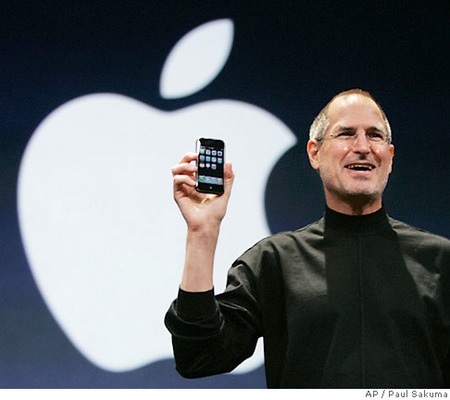Near the end of my graduate summer internship at Intel Capital, my boss Nancy Kamei, asked me to present a dry-run of my investment thesis to her prior to going in front of the investment committee. Having won a few debate competitions in the past, I didn’t think there was much to this and presented the deck and materials I knew cold. I was stunned when she said to me “that was quite bad. You are not ready at all.”

Nancy’s subsequent professional and career guidance has stayed with me ever since:
1. You must practice presenting even if you know the material inside and out. This means speaker notes for each slide so you’re not reading the slides and know beforehand what 1 or 2 points you want your audience to remember. I suspect that even great speakers like Steve Jobs, who appear to be adlibbing, prepare carefully and/or are giving a speech they’ve done several times before. (and indeed, I found that he does practice in a comment in a presentation on webinar best practices).
2. When asked a question by the audience that you’re not sure of, you should not conjecture beyond reason and instead will keep credibility by admitting “I don’t know and will get back to you on that.”
I went back to school determined to improve my public speaking skills and took the only such class with undergrads. Here too I learned a few things that were surprising:
3. Body language is crucial when presenting. Open stance, arms by your side and only moving for deliberate emphasis, momentary eye contact across the full spectrum of audience – all these keep the audience engaged.
4. Improve the image to text ratio. Slides with text, or multiple take-aways, cause the audience to either strain themselves reading and/or glaze over the material. Wow were my slides bad.
The final lesson came when I was recorded presenting adlib as part of training at BCG. The video was positively cringe-worthy and I couldn’t stand even 2 minutes of it when I saw that:
5. I use a ton of filler words like “um” and “ah”… it sounded very unprofessional.
6. I undermined my own credibility by using hedge words like “basically”, “generally”, “essentially” when I could instead have said what I wanted to in shorter and more powerful sentences.
I’m still working on improving my skills but can better appreciate and understand now why legendary presenters like Steve Jobs have mind-blowing presentations while others have forgettable ones.
Epilogue: On Jun 14, 2011, HubSpot employees were treated to a fantastic presentation by Nancy Duarte who helped build the visuals in Al Gore's famous presentation: Inconvenient Truth. Some points she made on making an impactful presentation:
- Show a contrast between what is and what can be. repeat this transition up and down multiple times in the presentation. start with the "what is", finish with the "what can be"
- Use of alliteration, metaphors and using pauses very often - almost at the end of every couple sentences.
- Tell a story that resonates with your audience. It's far more memorable than a series of business slides
- Believe in your story and show that through commitment. e.g. Steve Jobs lived with his phone for months before it was debuted and dreamed about it for "two and a half years". This showed his deep connection to what he was presenting.
- Research your audience extensively before your presentation. Google them, read their twitter feeds, their blogs and websites, their 10k reports, their press and advertising etc.
- All changes in the world begin as an idea that is communicated well. So we all need to begin here if we want to make a big impact.
